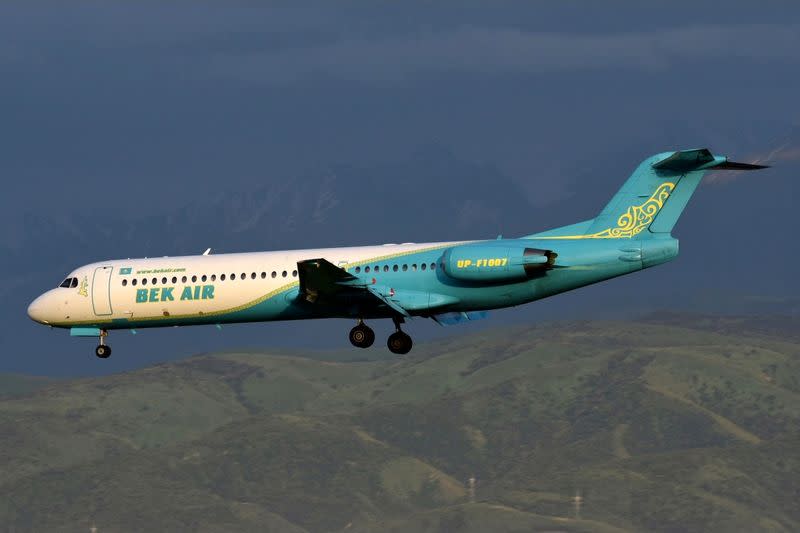Kazakh carrier says wake turbulence may have caused deadly crash

ALMATY (Reuters) - Kazakh carrier Bek Air, whose jet crashed near Almaty last week killing 12 people, said on Monday the accident may have been caused by wake turbulence, an explanation immediately disputed by the Central Asian nation's air navigation company.
The Fokker 100 lost altitude during take-off and broke through a concrete fence before hitting a two-storey building. Authorities are looking into the possible causes, including pilot error and technical issues.
Indirectly blaming air traffic controllers, Bek Air chief executive Nurlan Zhumasultanov said the jet may have been cleared for take-off too soon.
"In calm weather, wake turbulence persists for two-three minutes," he told a briefing, adding that the crashed Fokker took off about a minute or two after the previous jet.
However, state-owned company Kazaeronavigatsia which is in charge of air traffic control said the 1 minute 52 second interval between the take-offs was in line with regulations.
"We have submitted all the documents and we should wait until the commission finishes its work," Kazaeronavigatsia deputy chief executive Faat Bogdashkin said, referring to the commission set up to investigate the accident.
Kazakh Prime Minister Askar Mamin who heads the commission has ordered it to present preliminary findings by Jan. 10.
(Reporting by Mariya Gordeyeva, Writing by Olzhas Auyezov, editing by Ed Osmond)


